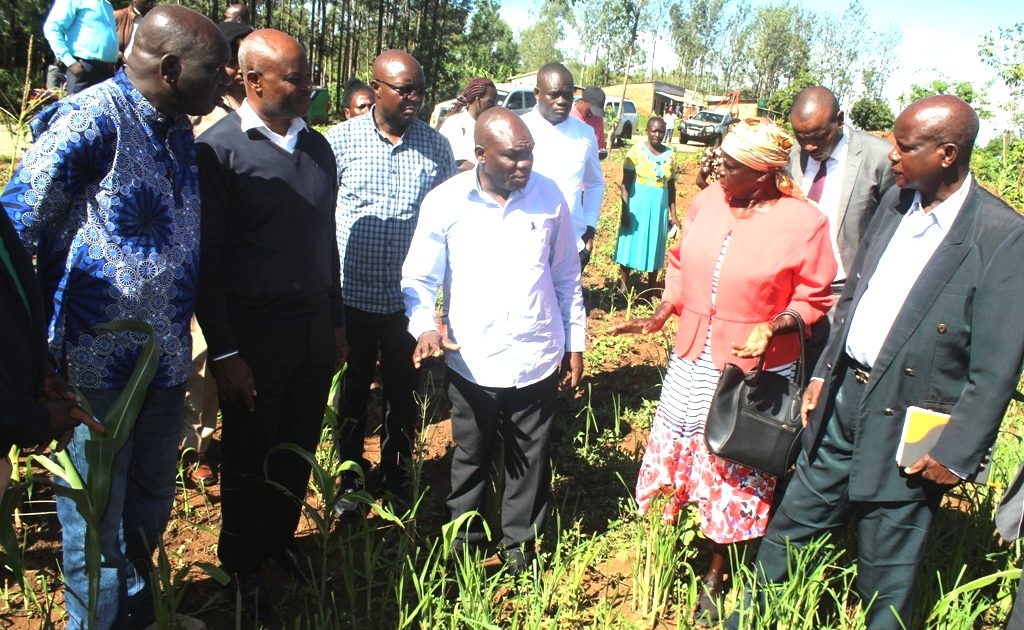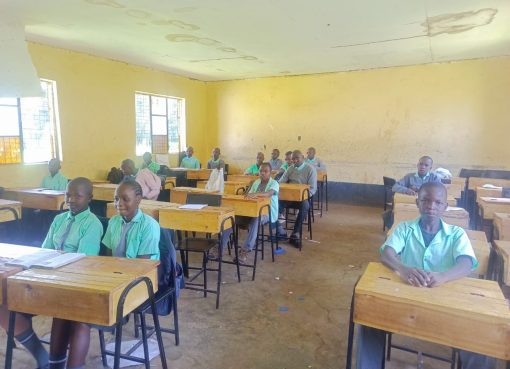The Ministry of Agriculture, Livestock, Fisheries and Cooperatives has launched a nationwide campaign to contain the African armyworm that is destroying maize crops, while spreading rapidly countrywide.
While launching the initiative at Chamasiri in Teso North Sub-County Wednesday, Acting PS for Crops Development and Agricultural Research Dr. Francis Owino said the government in conjunction with other development partners has put in place adequate measures to address the menace.
“We are having a challenge of the African armyworm. As a government we have established that 33 counties are affected. In these counties approximately 500,000 hectares of crops have been destroyed.
We have reached out to our development partners including The World Bank and FAO to support us in controlling the spread of the worms and they have given a positive response. That is why we are launching this campaign targeting all the affected counties,” he said.
Dr. Owino disclosed that they have planned an elaborate capacity building programme and training of all those who will participate in the spraying process.
He said the African armyworm is a migratory pest hence individual farmers cannot control them single handedly.
The pests move from one farm to another. They are not cognizant of boundaries. Therefore, the responsibility to deal with the pests belongs to the national and county governments and we are doing all we can to coordinate the exercise, added the PS.
“The role of the farmer is to report promptly to agricultural officers or administrators both at national or county level, whenever they notice unfamiliar pests in their farms,” he said.
The PS said the ministry in collaboration with the county governments will continue monitoring to ensure success of the control operations in order to guard farmers from further losses.
The County Executive Committee Member for Agriculture Moses Osia lauded the national government for picking Busia as the launching ground for the campaign against the African armyworm.
“Busia County is among the most affected counties. All the seven sub counties of Teso North, Teso South, Nambale, Butula, Samia, Matayos and Bunyala have been affected.
Approximately over 15000 hectares have been affected. The county government has tried to control the pest but today we are appealing to both the national government and other partners to come and assist the affected farmers with seeds and fertilizer so that they can replant,” appealed Osia.
Teso North legislator Oku Kaunya lauded the government for coming out to combat the destructive pest and save farmers from its ravaging effects.
Kaunya appealed to the government to donate seeds and fertilizer to the farmers whose crops have been destroyed to enable them replant.
He asked the government to revitalize cotton growing in Teso region as that was the only cash crop the residents initially relied upon.
“Let the government allocate adequate resources to cotton farming and revive the ‘dead’ ginneries for the benefit of our farmers,” he said.
FAO representative George Otieno told farmers that the current pest destroying their crops is the African armyworm and not the Fall armyworm, hence the control measures are different.
Teso South Deputy County Commissioner Isaac Keter who represented his Teso North counterpart urged farmers to keenly observe instructions from the agricultural experts in order to control the destructive pests.
The African armyworm is a migratory moth, predominantly in Africa south of the Sahara, Yemen and certain countries of the Pacific region.
Normally, only small numbers of this pest occur, usually on pastures.
However, periodically the populations increase dramatically and mass migration of moths occur, covering many thousands of square kilometers and traversing international boundaries.
They travel from field to field in great numbers, hence the name armyworm.
By Melechezedeck Ejakait




